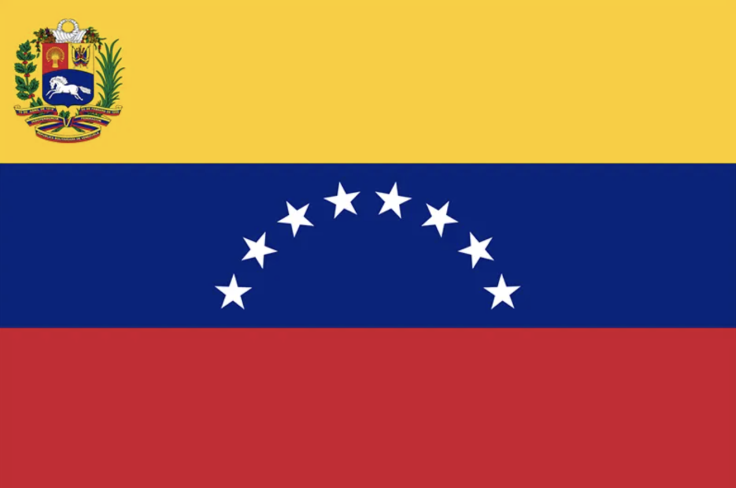The UK's Venezuela Policy Is Neither Here Nor There – Even By American Standards

Article By Peter Burdin, former BBC World Assignments Editor
Revelations of Boris Johnson's recent visit to Caracas, where he met the autocratic President Nicolás Maduro, seem to have revealed a gulf where a coherent UK Government policy towards Venezuela should exist.
Responding to media enquiries, the former Prime Minister's private office stated that democracy, human rights, and Ukraine were the only topics discussed. At the same time, the Foreign Office clarified that Johnson was acting unofficially.
Nonetheless, the visit raised eyebrows and played into long-running tensions between Johnson and Lord Cameron, the Foreign Secretary. It also begs the following question: if Johnson is not the UK's diplomatic backchannel to Venezuela, a nation of critical importance to European energy markets, then who is?
In reality, the UK's decision to end its recognition of President Maduro in 2019 in favour of the (now defunct) interim government of the charismatic but fundamentally unviable Juan Guaidó has left both Westminster and British business on the sidelines. This is at a time when the current government wants to 'unleash Britain' on the world stage post-Brexit.
Instead, the UK is now out of step with the US, which is in the midst of a rapprochement with Venezuela. The lack of legal certainty over UK-Venezuela ties has hindered the ability of British energy companies to operate in the Venezuelan market. The country has the largest proven oil reserves and is an emerging natural gas superpower.
The UK's position originated on Jan. 24, 2019, when the then Foreign Secretary Jeremy Hunt was in the US for an official visit.
In line with the Trump administration's position, Hunt announced that the UK had withdrawn recognition of Maduro as Venezuela's 'legitimate leader.' The UK then announced its support for Juan Guaidó on February 4.
Guaidó had been nominated for the Presidency in Dec. 2018 by Venezuela's anti-government National Assembly and, despite the position being occupied and no elections have taken place, was soon lauded by Trump as the ideal man to take on Maduro.
However, by April 2021, Guaidó's failure to garner meaningful popular or institutional support in Venezuela led to the EU officially withdrawing recognition of his shadow regime. The US pulled its support in Jan. 2023 when Venezuela's opposition bloc voted to dissolve Guaidó's powerless 'interim government.'
Despite the US decision, the UK government did not budge except for issuing a vague communiqué on the dissolution, leaving its diplomatic and commercial relations with Venezuela in limbo. The world's sixth-largest economy finds itself in the strange position of not yet turning away from Guaidó despite his, at best, symbolic interim government having expired more than a year ago. At the same time, Maduro continues into his eleventh year as Venezuela's leader, de facto and de jure.
Maduro's durability is evidence of the US' failure to depose him through almost a decade of sanctions.
Acceptance of this failure, however, drove President Biden to restate a high-level dialogue, if not full diplomatic relations, with Venezuela upon his election. The result was a deal announced in Oct. 2023, known as the Barbados Agreement, that repealed US sanctions on Venezuela's energy sector in return for democratic reforms and other concessions.
Maduro has since announced that an election will be held on July 28, while American energy firms like Chevron benefit from renewed access to the country's prodigious oil and gas reserves.
European producers Eni and Repsol have also resumed operations with PdVSA, the state oil monopoly. The Dutch supermajor Shell recently announced plans to extract gas from a Venezuelan-Trinidadian offshore gas field.
As such, British energy companies and their associated contractors look on in vain as their competitors steal a march in such a crucial market. This week, BP signaled its intentions to extract gas from Venezuelan waters in partnership with Trinidad, which offers nearby infrastructure to export liquified natural gas (LNG).
There are doubts, however, over whether BP will be able to do so given the uncertainty around UK-Venezuela relations – compounded by the clash resulting from Venezuela's territorial claims over (formerly British) Guyana. As such, British firms are unclear over whether operating in Venezuela would result in a backlash from the Foreign Office.
This uncertainty is doubly confounding, considering the UK depends on gas for approximately 40 percent of its energy consumption. British consumers are, therefore, equally dependent as those in the EU on the development of new import streams as the continent attempts to reduce reliance on Russian hydrocarbons.
Producers like BP require legal certainty to operate in Venezuela, which the British government can provide by clarifying its relationship with the Maduro administration. Allowing the current diplomatic purgatory to continue would hinder the UK's drive for energy security and undermine its valuable reputation amongst international businesses for predictability under common law.
Ultimately, if the Venezuelan market is good enough – and safe enough – for Chevron, Shell, Repsol, and their respective governments, then there should be no barriers to Britain plc. following suit.
© Copyright IBTimes 2025. All rights reserved.





















